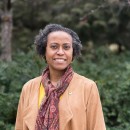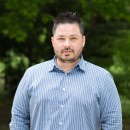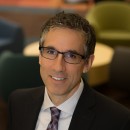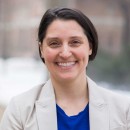School of Social Work News
Pages
 Trina Shanks Cited in The Huffington Post on Historical Inequality and Income Disparities
Trina Shanks Cited in The Huffington Post on Historical Inequality and Income DisparitiesAssociate Professor and Institute for Social Research Faculty Associate Trina Shanks was cited in The Huffington Post’s article, “Blank Account: The American Struggle to Save and Share”.
- February 6, 2015
- Learn more »

 Mieko Yoshihama and Richard Tolman Published in American Journal of Community Psychology
Mieko Yoshihama and Richard Tolman Published in American Journal of Community PsychologyProfessors Mieko Yoshihama and Richard Tolman co-authored an article, “Using Interactive Theater to Create Socioculturally Relevant Community-Based Intimate Partner Violence Prevention” which was published in the American Journal of Community Psychology.
- February 4, 2015
- Learn more »
 Andrew Grogan-Kaylor Cited in The Christian Science Monitor on Potential Harm of School Dress Codes
Andrew Grogan-Kaylor Cited in The Christian Science Monitor on Potential Harm of School Dress CodesAssociate Professor Andrew Grogan-Kaylor was cited in The Christian Science Monitor’s article, “Why school dress codes may be harmful to girls”.
- January 30, 2015
- Learn more »
 David Cordova Published in Hispanic Journal of Behavioral Sciences
David Cordova Published in Hispanic Journal of Behavioral SciencesAssistant Professor David Cordova’s paper, "Toward a Typology of Acculturative Stress: Results among Hispanic Immigrants in the United States" has been accepted for publication in the Hispanic Journal of Behavioral Sciences.
- January 29, 2015
- Desmond Patton's Research on Social Media and Youth Violence Cited in Supreme Court Case Elonis v. United States
Assistant Professor Desmond Patton's research on social media and youth violence was cited in the brief submitted for oral arguments for the U.S. Supreme Court case Elonis v. the United States of America. His paper, "Social Media as a Vector for Youth Violence" was cited to highlight a finding which suggests that youth who make threats about school shootings are more likely to carry out that threat.
- January 26, 2015
- Learn more »
- Stephanie Chang (MSW'14) Starts Historic First Term in the Michigan House of Representatives
Stephanie Chang (MSW’14) kicked off her notable first term in the Michigan House of Representatives this past week, as she is the first Asian-American woman to ever serve in the Michigan Legislature. Her current endeavors are featured in The Michigan Daily.
- January 23, 2015
- Learn more »
 Joseph Ryan, Amy Good (MSW'80), Terri Gilbert (MSW'87) Appointed to Michigan Committee on Juvenile Justice
Joseph Ryan, Amy Good (MSW'80), Terri Gilbert (MSW'87) Appointed to Michigan Committee on Juvenile JusticeGovernor Rick Snyder announced appointments and reappointments to the Michigan Committee on Juvenile Justice. The committee advises the governor on juvenile justice issues and guides effective implementation of juvenile justice policies and programs. Three of the committee members are affiliated with the U-M School of Social Work:
Joseph Ryan (MSW’96) is an associate professor at the U-M SSW and a faculty associate for the Center for Political Studies and the Institute for Social Research.
Amy Good (MSW’80) is CEO of Alternatives for Girls. She has more than 27 years of experience working with homeless and high-risk girls and young women, primarily in Detroit.
Terri Gilbert (MSW’87) is executive director of the Oakland County Bar Association. She served as bureau director of child welfare funding and juvenile programs for the State of Michigan’s Department of Human Services.
- January 22, 2015
- Learn more »
- Brandy Sinco Completes Statistical Analysis for Society for Social Work and Research Conference Paper
Research Associate Brandy Sinco completed the statistical analysis for a paper, "Assessing the Effects of Objective LGBQ-Inclusive State and College Structural Factors on the Experiences & Psychological Wellbeing of LGBQ College Students" that was presented at the Society for Social Work and Research conference.
- January 20, 2015
- Learn more »

 Brian Perron and Angie Perone Published in Journal of Studies on Alcohol and Drugs
Brian Perron and Angie Perone Published in Journal of Studies on Alcohol and DrugsAssociate Professor Brian Perron and Angie Perone (PhD student) had an article accepted for publication in the Journal of Studies on Alcohol and Drugs: "Use of prescription pain medications among medical cannabis patients: Comparisons of pain levels, functioning, and patterns of alcohol and drug use”.
- January 20, 2015
- Policing Black Bodies: A dialogue on Poverty, Police Brutality, and the Way Out featured in the Michigan Daily
"Policing Black Bodies: A dialogue on Poverty, Police Brutality, and the Way Out" was on the front page of the Michigan Daily. The panel lead a dialogue on the underlying racial tensions and the ways in which a new generation of activism can provide a way forward. Writer Shaun Ossei Owusu, Assistant Professor Kamau Rashid and SSW PhD student Finn Bell discussed how poverty, race and police brutality have changed throughout U.S. history. The discussion was sponsored by University of Michigan School of Social Work, Learning Community on Poverty and Inequality, U-M School of Social Work and Center for Public Policy in Diverse Societies, U-M Gerald R. Ford School of Public Policy.
- January 20, 2015